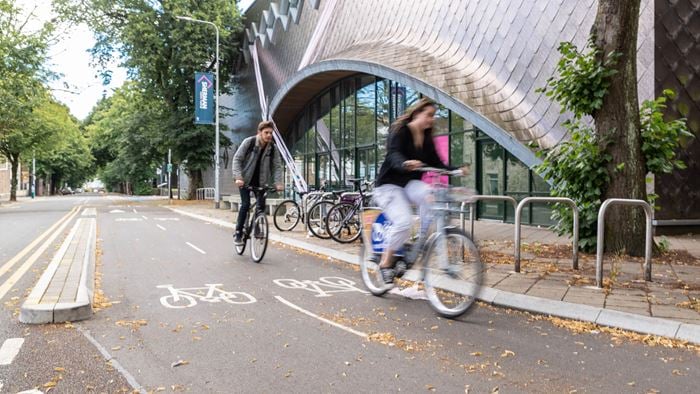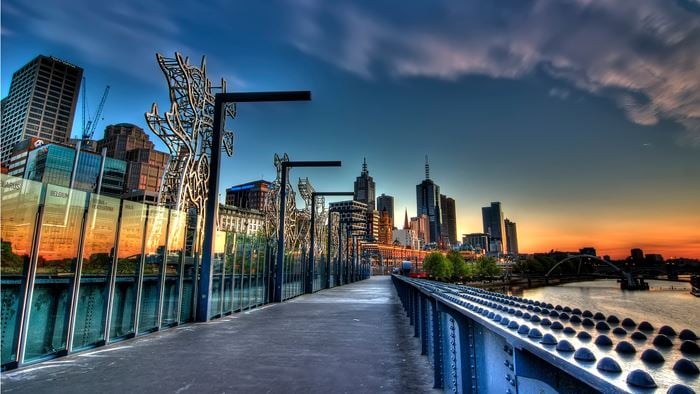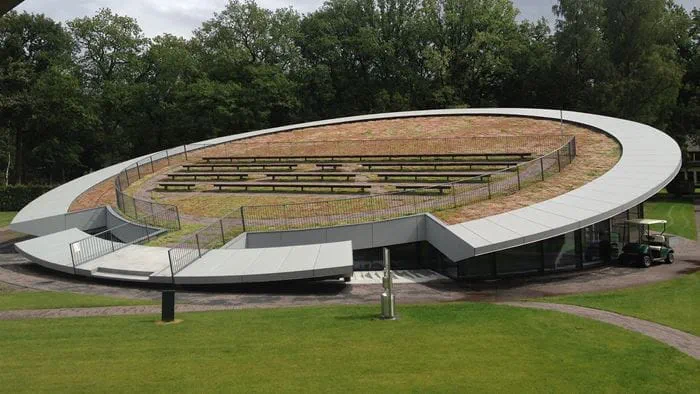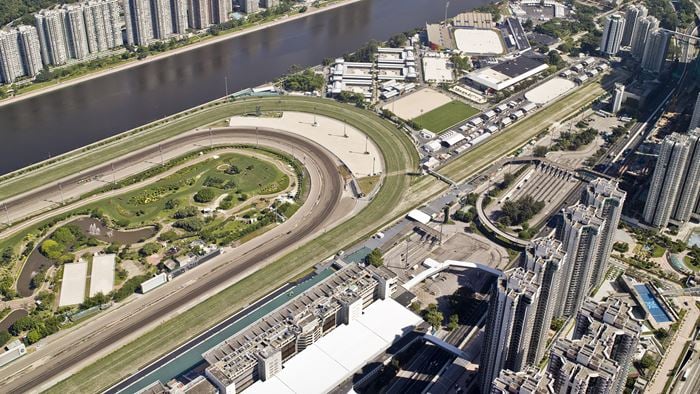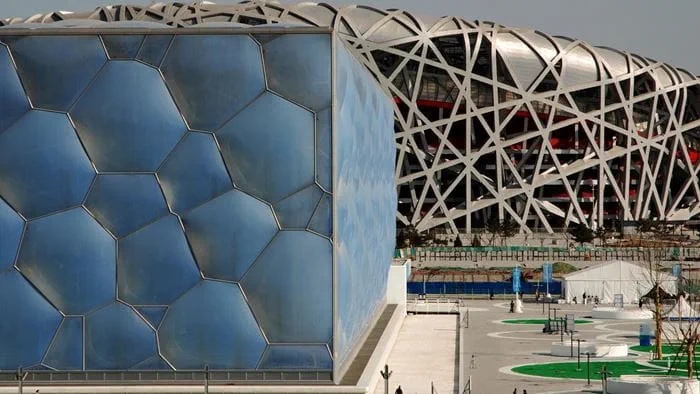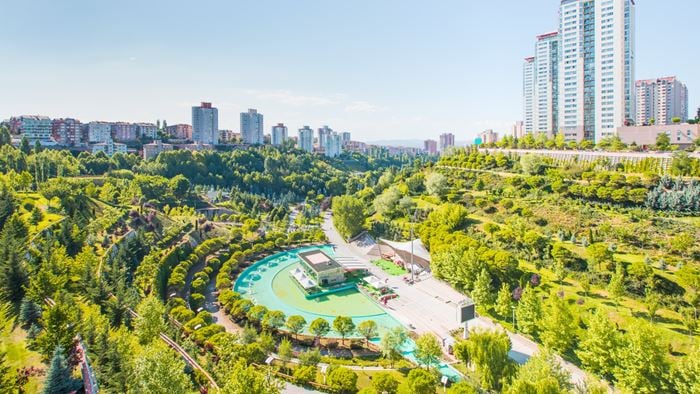When a group of teenagers with an enthusiasm for design came up with the idea for a new sustainable cycle café in Winchester, they needed technical support to develop their concept into a reality. The proposed site was challenging – a disused railway embankment sandwiched between a Site of Special Scientific Interest (SSSI) and a Scheduled Ancient Monument (SAM), with a high-pressure sewer beneath its unstable slope.
The young people involved were part of spudYOUTH – a local charity providing weekly workshops for teenagers interested in architecture, urban design and public art. Arup’s team engaged with the group from the pre-planning stage, helping overcome technical challenges and site constraints to create a thriving community hub for walkers and cyclists.
Working with architects Architecture PLB and other local firms, we have supported the group through planning, engineering, detailed design and delivery of the café beside the Hockley Viaduct Cycle Path. With health and wellbeing at the heart of the project, sustainability has been woven into its design, providing a vibrant space for the community to enjoy now and for years to come.
Project Summary
4 year collaboration
30Arup volunteers
1new community space
Getting the project off the ground
The original design concept was a sustainable timber building that echoes the form of two passing railway carriages, reflecting the site’s history. With support from Arup and Architecture PLB in place, the young designers secured backing from Winchester City Council (WCC), and agreed on a lease of the site at a low cost. The council also helped to fund the project, along with Hampshire County Council, Sport England and many other organisations. Additional support came from local fundraising and the free services of the design team.
© Julia Conway Photography
A sensitive site
Before work could begin on detailed design, complex planning issues needed to be resolved. Arup offered support through the planning process and liaised with the local authority, regulators and public bodies such as Natural England. Early engagement enabled us to identify and mitigate potential challenges – such as proximity to the nearby River Itchen SSSI and St Catherine’s Wood SAM – from the outset. Several of our planning specialists were involved in the process, such as our ecologists who identified root protection zones and ensured work was planned around local bird breeding seasons to minimise impacts.
“The knowledge and professionalism of the Arup team has helped take this project from a concept to something that we can genuinely deliver. The young people involved in the project have gained real skills and knowledge from working alongside Arup and the rest of the project team. ” Mark Drury SPUD Director
Structural challenges
As well as being in an historically and ecologically sensitive area, there is a high-pressure sewer running beneath the site and the embankment slope is unstable. Our team guided the project through the complexities of build-over applications, utility connections and discharges to water courses. We advised on ground investigations and designed the building’s raft foundation, which avoided the risk of slope failure by carrying the building’s load to the compacted core of the embankment.
Using modern methods of construction
An off-site, modular method of construction was most valuable to minimise construction times on site and reduce disruption for users of nearby car parking and walking and cycling routes. Modular units were constructed off site by specialists Bespoke Modular Developments and then craned into place. This method of construction required extremely close collaboration between Bespoke Modular and our structural engineers to integrate the structural and detailed building designs.
Delivering social value
The Handlebar Café project has transformed a derelict railway embankment into a community resource delivering social and wellbeing benefits to local people. Set up as a social enterprise, the café provides employment opportunities for long-term unemployed people, youth training in hospitality and bike maintenance, revenue to support continuing spudYOUTH architectural workshops, and a reduction in social isolation for young people living in rural communities. The café’s cycle maintenance and hire facilities support local active travel and provide amenities for walkers and cyclists on the nearby National Cycle Network Route 23.
© Pulse8.uk.com
From the ground up: improving the delivery of social value in construction
This report makes a series of recommendations for change, designed to support those who procure social value and those who supply it, and ultimately help the UK achieve the social value outcomes it seeks.
Download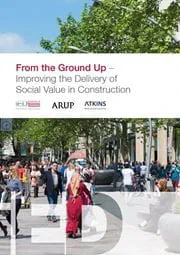
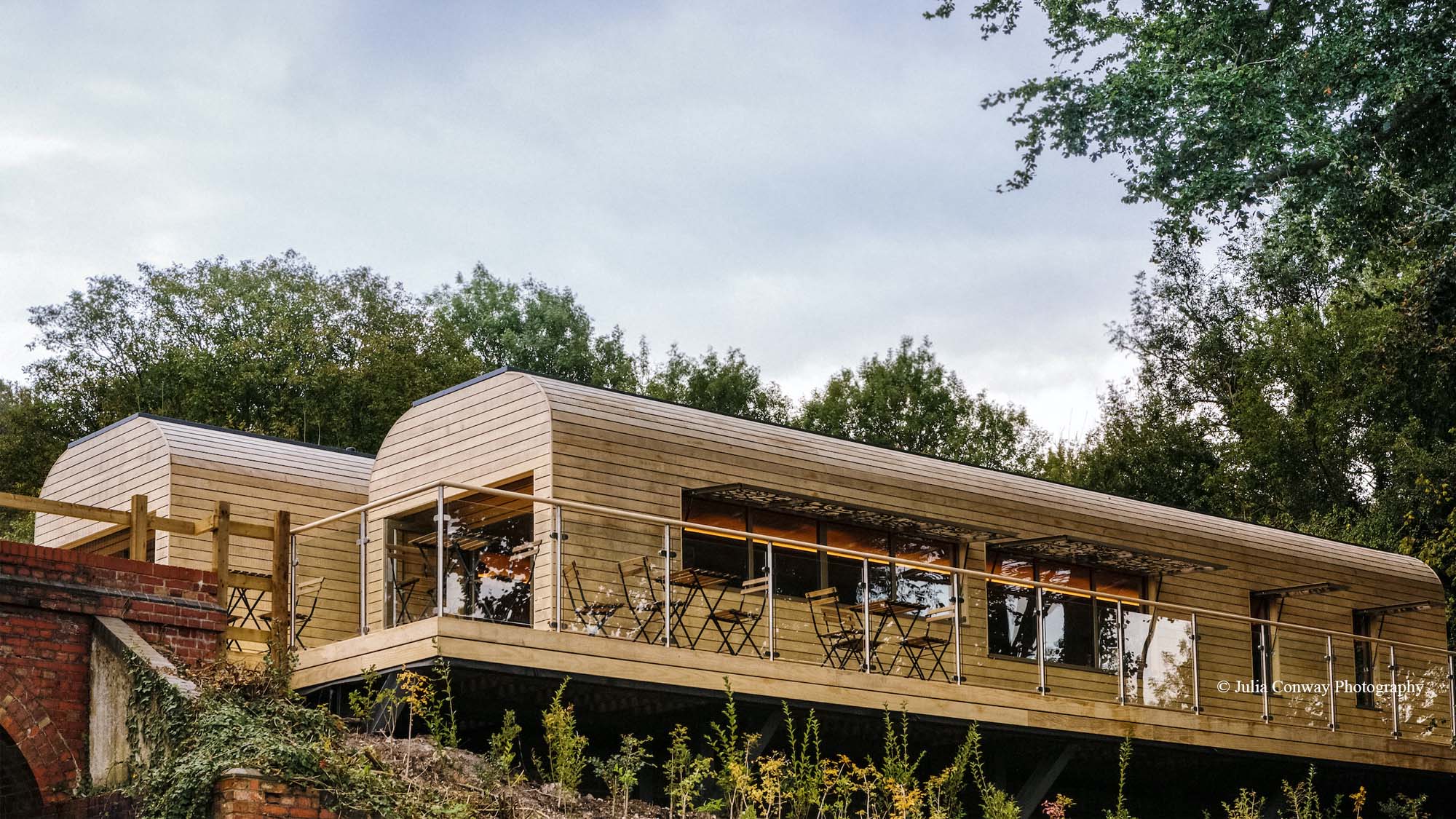 ;
;

